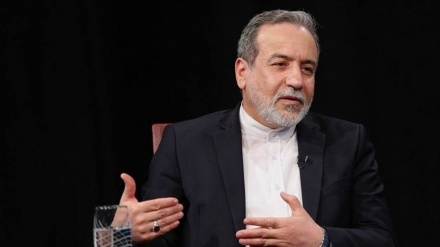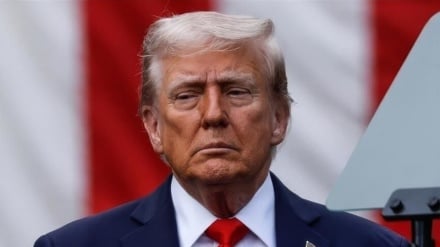Man aspires for a world without nuclear tests
As of the mid-20th Century, which marks the onset of nuclear weapons’ tests, nearly 2000 nuclear tests have been carried out worldwide to this date.
Today, August 29, is marked as the International Day against Nuclear Tests. On December 2, 2009, the UN General Assembly, throughout its 64th meeting, approved a resolution, naming August 29 as the International Day against Nuclear Tests, and urging members of the international community to put an end to nuclear tests.
As of 1950, arms control advocates started large-scale efforts for approval of a treaty against nuclear tests. In reaction to growing international concerns over the threats posed by nuclear weapons, the necessity for conclusion of a treaty in this domain was sensed more than ever. However, the need for conclusion of such a treaty was first pointed out throughout the speech which was delivered by the former Indian premier, Jawaharlal Nehru, before the UN, in the year 1954, on prohibition of nuclear weapon tests.
Four years later, in the year 1958, the US, former Soviet Union, and Britain, participated in a confab in Geneva on stoppage of nuclear tests. However, this confab was inconclusive due to differences of opinion among parties who had attended this conference.
Ultimately, in August 1963, a treaty was concluded by the said three countries in Moscow on the restricted prohibition of nuclear tests. This treaty forced the member states to refrain from any nuclear test in space, or under water. France and China did not join this treaty and continued their tests in the atmosphere. Meanwhile, this treaty ultimately failed, with the nuclear states doubling their tests after the year 1963.
Finally, on September 1996, the Comprehensive Nuclear-Test-Ban Treaty (CTBT) was founded at the nuclear disarmament conference.
The Comprehensive Nuclear-Test-Ban Treaty was approved at the UN General Assembly as a multilateral treaty on September 10, 1996. This treaty forbids the member states from carrying out nuclear explosion in a location within the territory, or under the control of the said member state.
Up to now, over 160 countries have signed and approved this treaty in their parliaments. Meanwhile, 44 specific countries should sign and approve this treaty for its implementation; of which eight countries are yet to fulfill this task.
Nuclear weapons are a nightmare for the environment and human health. The most destructive nuclear weapon that has been used to this date is the Type A bomb which was used in Hiroshima and Nagasaki in the year 1945, and at the end of World War II. Nonetheless, nuclear weapon tests are still carried out in countries such as the US, France, India, and Pakistan, despite the conclusion of the Comprehensive Nuclear-Test-Ban Treaty in the year 1996. Meanwhile, it has been discovered that nuclear weapon tests even leave an impact on the inner layers of the planet, in addition to leaving a destructive impact on land and seas.
The world still bears witness to the numerous destructive impacts of nuclear tests, which were carried out under water in the past. The implementation of nuclear tests in Nevada Desert in the US, which turned regional lands into arid radiated lands, is a prime example of environmental catastrophes inflicted upon the usage of nuclear weapons in the US.
According to Greenpeace statement, if nuclear power stations are targeted amid wars, they leave a worse impact compared to the actual usage of nuclear weapons.
This year, an international confab, which calls for establishment of a world without nuclear weapons, has been underway on August 28-29, concurrent with the 25th anniversary of closure of Semipalatinsk Test Site, in northeast Kazakhstan. Governmental and religious officials, nuclear disarmament experts, civil groups’ activists, and representatives of international and regional organizations from different parts of the world have attended this conference. Also, experts from Iran’s Foreign Ministry are in attendance in this confab.
Islamic Republic of Iran has always supported peaceful nuclear activities and has always opposed the proliferation of nuclear weapons and nuclear tests. Three years ago, throughout the UN disarmament meetings, upon the suggestion of President Hassan Rohani, September 26 was named as the International Day for Total Elimination of Nuclear Weapons.
President Rohani pointed out: “No nation should have nuclear weapons. Instead of nuclear weapons, let’s allocate financial sources for development, and eradication of poverty, illiteracy, and diseases. Let’s leave a world free from nuclear weapons for future generations. This is their right and our responsibility.”
The Islamic Republic of Iran’s Envoy to UN, Gholam-Ali Khoshrou, also in an address to UN, last week, on behalf of the Non-Aligned Movement member states, noted: “Non-Aligned Movement member states are deeply concerned over the existence of weapons of mass destruction, especially nuclear weapons, and call for their total elimination. In the view of the Non-Aligned Movement, nuclear disarmament is an absolute and essential priority.”
MR/SS


